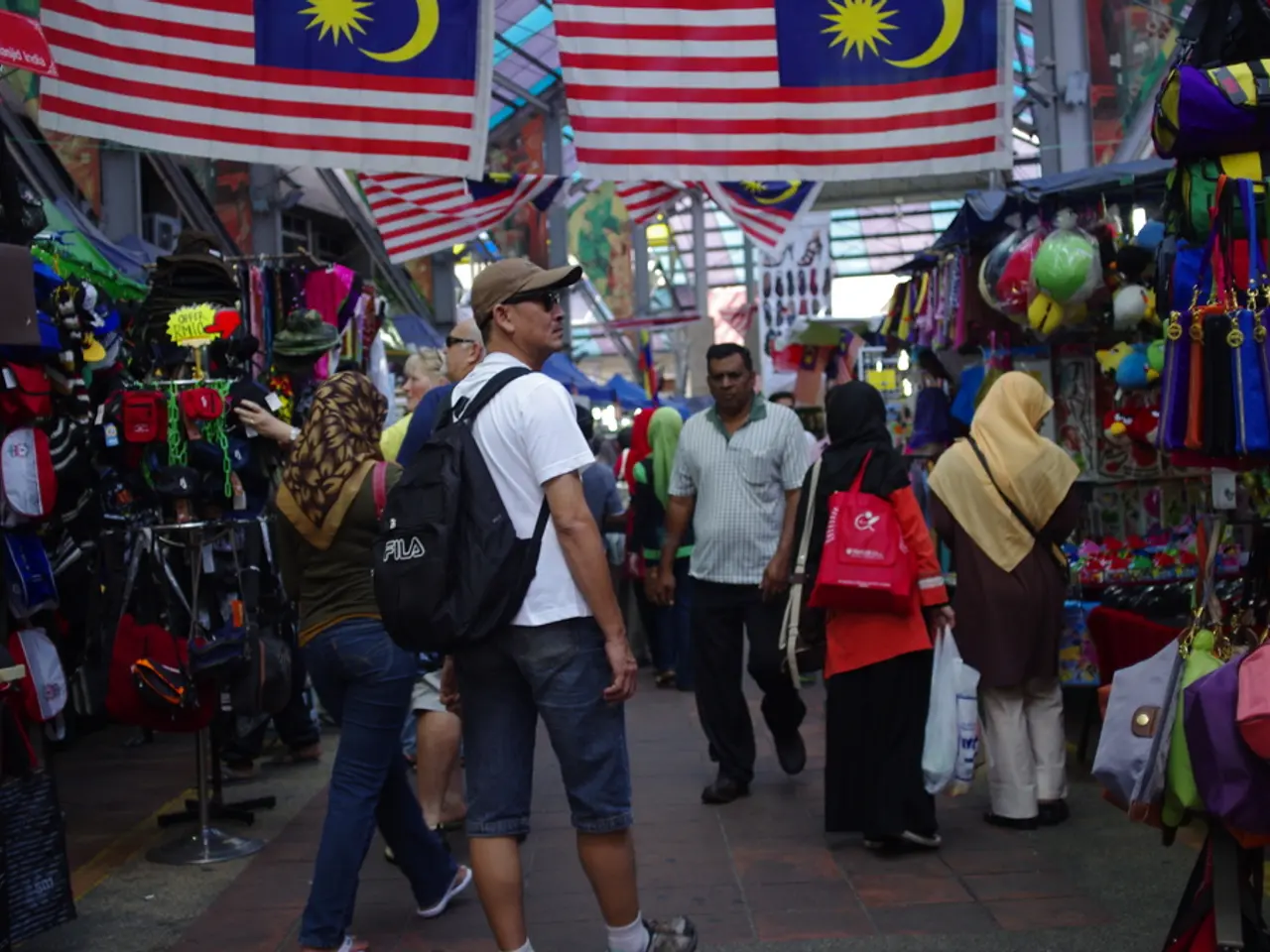Collaboration with the Taliban on women's rights in Afghanistan: Is it an option worth considering?
The Taliban's new regime in Afghanistan, marked by the publication of the "Virtue Law," has imposed stringent restrictions on women, banning them from raising their voices in public or singing, and imposing new rules on men. These restrictions have led to a significant setback for women's rights in the country, with women losing the gains they made in a short time, including the right to work and attend school beyond the sixth grade.
Despite these human rights violations, the international community is cautiously engaging with the Taliban. This engagement is driven by the need to address the ongoing humanitarian crisis and maintain regional stability.
Diplomatic Engagement and Recognition
Russia became the first country to formally recognise the Taliban government in July 2025, potentially easing the Taliban’s international isolation. Other countries, such as those in the Gulf Cooperation Council (GCC), have not formally recognised the Taliban but maintain extensive pragmatic engagement. For instance, the UAE manages Afghan airports and sustains air connectivity, balancing ties with the West and expanding relations with Russia and China.
Humanitarian Considerations
The United Nations Security Council has created a humanitarian exception to the 1988 sanctions regime against the Taliban to facilitate aid delivery amid a dire humanitarian situation. The focus is on coherent policies that support Afghan women and girls, aiming to preserve social development gains despite the patriarchal constraints under Taliban rule.
Women’s Rights and Accountability
Afghan women's activism has highlighted grave rights abuses by the Taliban, prompting international efforts to criminalize "gender apartheid" as a crime against humanity. Eleven states are considering embedding this crime into international law, which would strengthen global protections for women and girls and counter the normalization of Taliban abuses.
Security and Regional Stability Efforts
The Taliban seeks to break diplomatic isolation, exemplified by its request for control over the Afghan embassy in Washington, aiming to assert legitimacy and enable dialogue. Cooperation with the US on counterterrorism against ISIS-K and other groups reflects a pragmatic approach that prioritises stability. Regional tensions—border and refugee issues—also motivate Taliban engagement with neighbours like Pakistan, Iran, and Central Asian states.
Role of Middle Eastern States
Qatar continues as a key mediator, facilitating Taliban contacts with the West and helping arrange prisoner exchanges. The UAE has accepted Taliban-appointed diplomats, indicating deepening ties. These states also hosted recent Taliban delegations, signalling shifts in the geopolitical landscape and creating limited but important channels for negotiation and humanitarian dialogue.
In summary, the international community balances pragmatic cooperation with the Taliban to address security and humanitarian objectives, while pressing for women’s rights protections and accountability through diplomatic, legal, and sanctions-focused tools. This approach combines engagement with conditionality amid ongoing skepticism about the Taliban’s governance and human rights record.
The civilian population and women in Afghanistan need hope the most. Switzerland was one of the first European countries to reopen its humanitarian office in Afghanistan, and many other countries have followed suit. However, the severe oppression women are experiencing under the Taliban regime calls for urgent action and continued international pressure to uphold women's rights and dignity.
[1] Source: The Diplomat, "The Taliban's Pragmatic Diplomacy: A New Era in Afghanistan" [2] Source: UN Women, "Afghanistan: Humanitarian Crisis and Women's Rights" [3] Source: Foreign Policy, "The Taliban's Gambit: Regional Tensions and the Afghan Crisis" [4] Source: The Guardian, "The Taliban's War on Women: A Crime Against Humanity?" [5] Source: Al Jazeera, "The Taliban's Gulf Allies: UAE and Qatar's Pragmatic Engagement"
- The UAE manages Afghan airports and sustains air connectivity, demonstrating a balance between pragmatic engagement with the Taliban and maintaining ties with the West.
- Eleven states are considering embedding "gender apartheid" as a crime against humanity into international law to strengthen global protections for women's rights.
- Qatar facilitates Taliban contacts with the West, signaling shifts in the geopolitical landscape and creating limited but important channels for negotiation and humanitarian dialogue.
- The United Nations Security Council created a humanitarian exception to the 1988 sanctions regime against the Taliban, focusing on coherent policies to support Afghan women and girls.
- The Taliban has requested control over the Afghan embassy in Washington, aiming to assert legitimacy and enable dialogue, while facing ongoing skepticism about its governance and human rights record.




